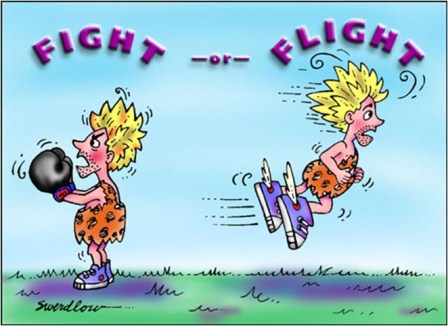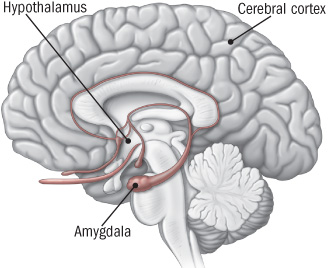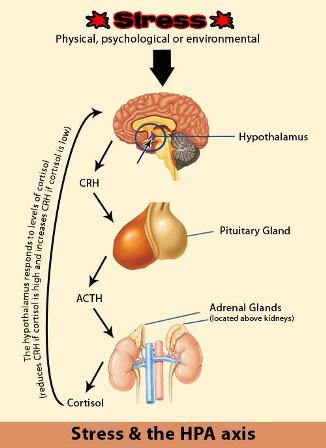Help Under Stress. Getting the Sting Out of It.
by This email address is being protected from spambots. You need JavaScript enabled to view it., Clinical Psychologist
It is very common now days to talk with family, friends, and colleagues about the difficulty we have with managing the conflicting demands and stress of our daily lives. We talk about being “exhausted,” “burned out,” and perhaps “afraid of losing it.” We also talk about the negative impact when stress is managing us. We sure know that stress may cause heart disease, but are we fully aware of the full picture of the impact of unmanaged stress?
For example, did you know about the alarming statistics about stress reported lately by the Global Organization for Stress (gostress.com)? Here are some highlights of what has been reported:
-Stress levels in the workplace are rising with 6 in10 workers in major global economies experiencing increased workplace stress.
-Depression is among the leading causes of disability worldwide.
-75% of US adults reported moderate to high levels of stress and nearly half reported that their stress has increased over the past year.
-80% of US workers feel stress on the job and nearly half say they need help in learning how to manage stress.
-77% reported experiencing physical symptoms such as fatigue, headaches, stomach upset, change in sex drive, and muscle tension.
-75 to 90 percent of physician office visits are for stress-
related complaints?
-Stress is linked to the six leading causes of death: heart disease, cancer, lung ailments, accidents, cirrhosis of the liver, and suicide?
-Stress is a top health concern for U.S. teens between 9th and 12th grade.
I suppose these could be shocking facts about the world we live in, PHEW!!! So let us take a breath without feeling guilty and think of the wise words of Ferris Buller, "Life moves pretty fast. If you don't stop and look once in awhile, you could miss it.’ I do not want you to miss it. So STOP, BREATHE and read on!!!
Given these statistics, it makes sense that many people define stress only as distress or as bad stress.
Take another breath though, as stress is not all bad as it also serves to protect us. Your perception of a real or even imagined stressor or danger can trigger a cascade of well orchestrated body responses known as the stress response. This reflexive stress response is also known as the "fight-or-flight" response, literally. It evolved as a survival mechanism, enabling us and mammals to react rather quickly to life-threatening situations. The instantaneous sequence of hormonal changes and physiological responses helps us cope with the stressors by fighting the threat off or by fleeing to safety.

Preparing for action
Thanks to this stress response, just as our ancestors jumped out of the path of a seething tiger and stayed safe, we move away from the site of a speeding car, or move our hand from a burning stove.
In addition to the fight or flight response, under the threat of unbearable news and constant traumatic stress we can also use a third stress response, the freeze response. When we go into freeze mode, our body gets numb, the mind disconnects or dissociates from reyality in order to cope. There are ways to get grounded though and return to reality. I will share grounding techniques in part II.
You may get impatient by now and say, oh, just tell me what to do. We will get to that in part II next week. By understanding the body reactions, we can be more respectful of our body and apply the tools we will learn.
Sounding the Stress Alarm. How Does It Happen?
Well, let’s go on an inside the body tour and figure this out….
The stress reaction begins in the brain, yes you read correctly, in the brain. When you experience a stressor, or danger, your five senses, send the information to the amygdala, an area of the brain that processes emotions. It is a hot spot in your brain. If your amygdala perceives danger, it instantly sends a distress signal to your hypothalamus, another brain structure.

The hypothalamus operates like a command center, and communicates with your body through your autonomic nervous system (sympathetic and parasympathetic nervous system). The autonomic nervous system (ANS) controls our breathing, blood pressure, heartbeat, and the dilation or constriction of blood vessels. The sympathetic nervous system (SNS) acts like a gas pedal in a car. When it perceives a stressor, a demand, or a threat, it automatically goes into action, triggering the fight-or-flight or freeze response, giving our body the energy needed to respond and manage the stress or danger.
The parasympathetic nervous system (PNS) acts like the car brakes. It calms the body when danger is over and helps us relax.
But let us go back to the brain. After the amygdala sends a stress signal, the hypothalamus triggers the SNS by sending signals through the nerves to the adrenal glands, located on your kidneys. These glands release the hormone epinephrine (known as adrenaline) into the bloodstream. As epinephrine is released in the blood stream, your heart begins to beat much faster, pushing blood to the muscles and organs. Your pulse rate and blood pressure go up and you breathe rapidly so you can take in more oxygen. Extra oxygen is sent to your brain to make you more alert. Your five senses get on hyper alert.
In the meantime, epinephrine triggers the release of blood sugar (glucose) and fats in your body to give you the energy you need to cope with stress.
All of these reactions happen so very rapidly even before your brain's visual centers have a chance to know what is going on. This is why we can act so fast and get out of danger even before we are fully aware or process what is happening.
We are almost done with the tour, so keep breathing.

As the release of epinephrine decreases, your hypothalamus activates the HPA axis (hypothalamic-pituitary-adrenal axis), the second part of the stress response. If the brain continues to perceive a threat, the hypothalamus releases corticotropin-releasing hormone (CRH), which activates the pituitary gland, and triggers release of adrenocorticotropic hormone (ACTH). This hormone then further activates the adrenal glands to release cortisol. Your body in this way stays on high alert. When the threat passes, cortisol levels fall.
Research suggests that prolonged distress and release of stress hormones can contribute to heart disease, high blood pressure, and obesity. It can also cause brain changes that may contribute to anxiety, depression, and addiction. It is this kind of stress that reminds me of Jennifer Yane's quote, "I try to take one day at a time, but sometimes several days attack me at once.’ Chronic distress feels like these days that never seem to stop attacking us.
Despite the notion though that the stressful demands cause our stress, mental health professionals would argue that stress is not caused so much by the demands made on the mind and body, but by our perception of such demands and if we feel able to manage them. Long ago, the philosopher Epictetus, had also wisely said that people are not disturbed by a thing, but by their perception of the thing.
So we are still in charge and lets not forget our parasympathetic nervous system (PNS) that is ready to help us calm down. We will discuss about how to engage the PNS and how to apply all the stress reduction tools to get the sting of out stress in Part II, next week, so stay tuned.
Till then, please remember that "Life is not a matter of having good cards, but of playing a poor hand well."
Feel free to leave us with your comments, reactions, feedback and your own wisdom of what has helped you to alleviate stress.
Should you have any further questions please feel free to reach Dr Elizabeth Marmaras at
917-589-9385 or at Talk2DrLiz.com
Disclaimer: The purpose of this article is to help inform and educate its readers. It is in no way a substitute for psychotherapy services. If you experience the effects of continues stress please speak to your physician or mental health provider.
